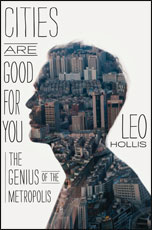"The idea of people coming together, sharing the same space and getting on with each other sounds simple but 7,000 years of urban history often disproves this. It was once far easier to know who you were and where you came from; the definition and requirements of citizenship were set out clearly. Yet, as the city grew beyond the boundaries of the first walls, the question of belonging became more problematic. How can you prove you are who you say you are? What are the codes of practice, the behaviour of 'cityness', and how do they evolve? How can you define community when people are on the move so much?
"As the population of the world becomes increasingly urban, redefining community is an ever urgent question. People, families and groups are coming to the city now in greater numbers than ever before; they are arriving at places that are so large and diverse that they cannot simply be defined by one identity. Community may be many things: a shared space, a way of behaving, as well as people; yet the process of belonging is more than anyone of these things alone. It is an ecology that combines place, people and the way they interact.
"But it seems that living together creates serious problems, that jamming so many people into such a tight space makes the city a ticking time bomb ready to explode. Somewhere between the experience of an evening in a Paris salon and the full scale of 9,000 years of urban history the problem of community had become an intractable crisis. How can we challenge this scenario?
"We are hardwired to be together. Despite the fact that we have been told most of our lives that we are all individuals, that survival of the fittest was the only rule of the game, we have been genetically designed to seek each other out and form communities. We are social animals and, as a result, the city is the most natural place for us to be. Our personalities are formed by our relationships with others; our language is shared; it is the connection with others that makes us happy, smarter and more creative. It is only our ability to cooperate that has allowed us to survive thus far. Collaboration is the engine of complexity, connecting us with each other, strengthening the social bonds. As evolutionary biologist Martin Novak writes: 'Cooperation is the master architect of evolution.' ."
